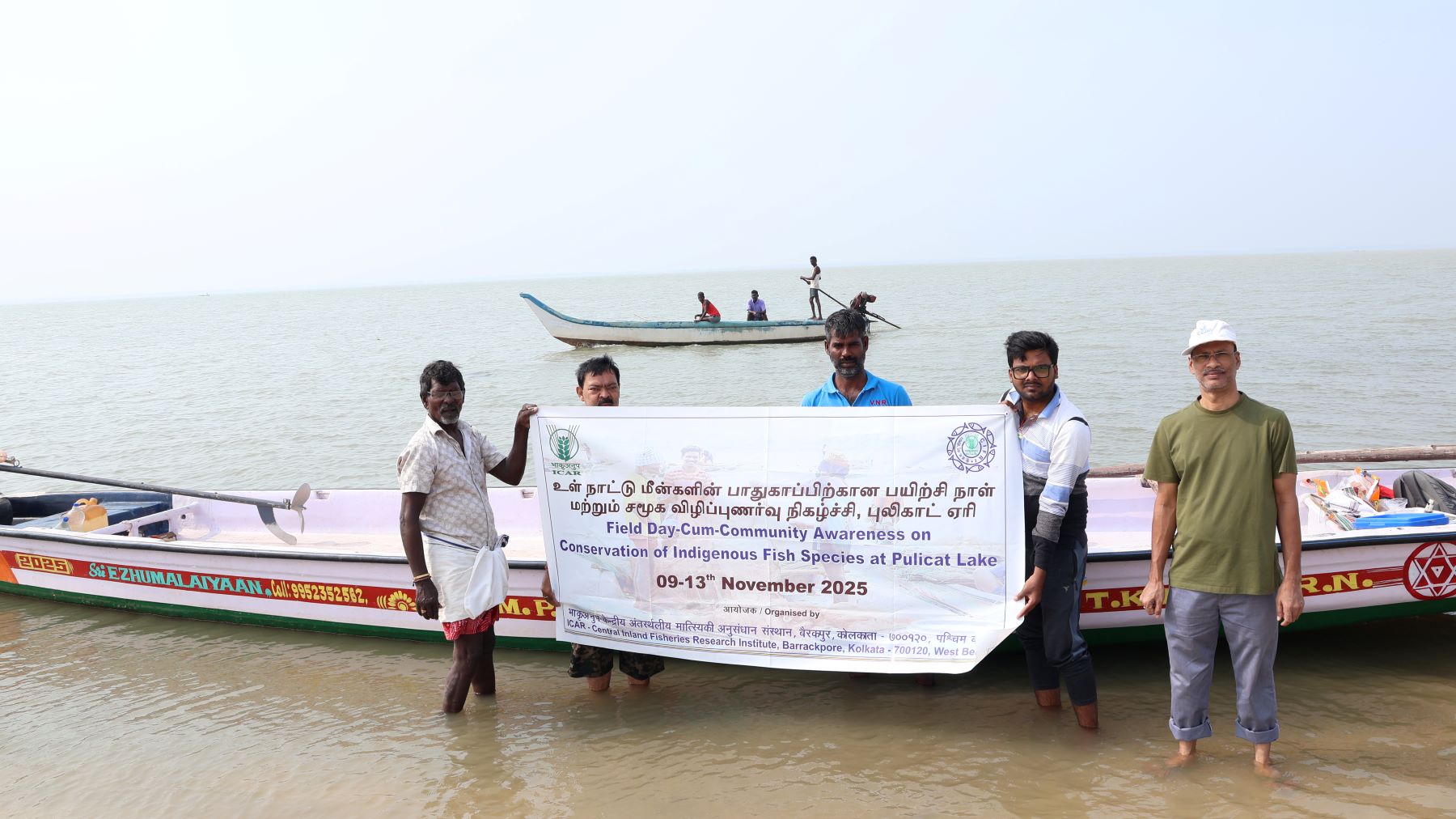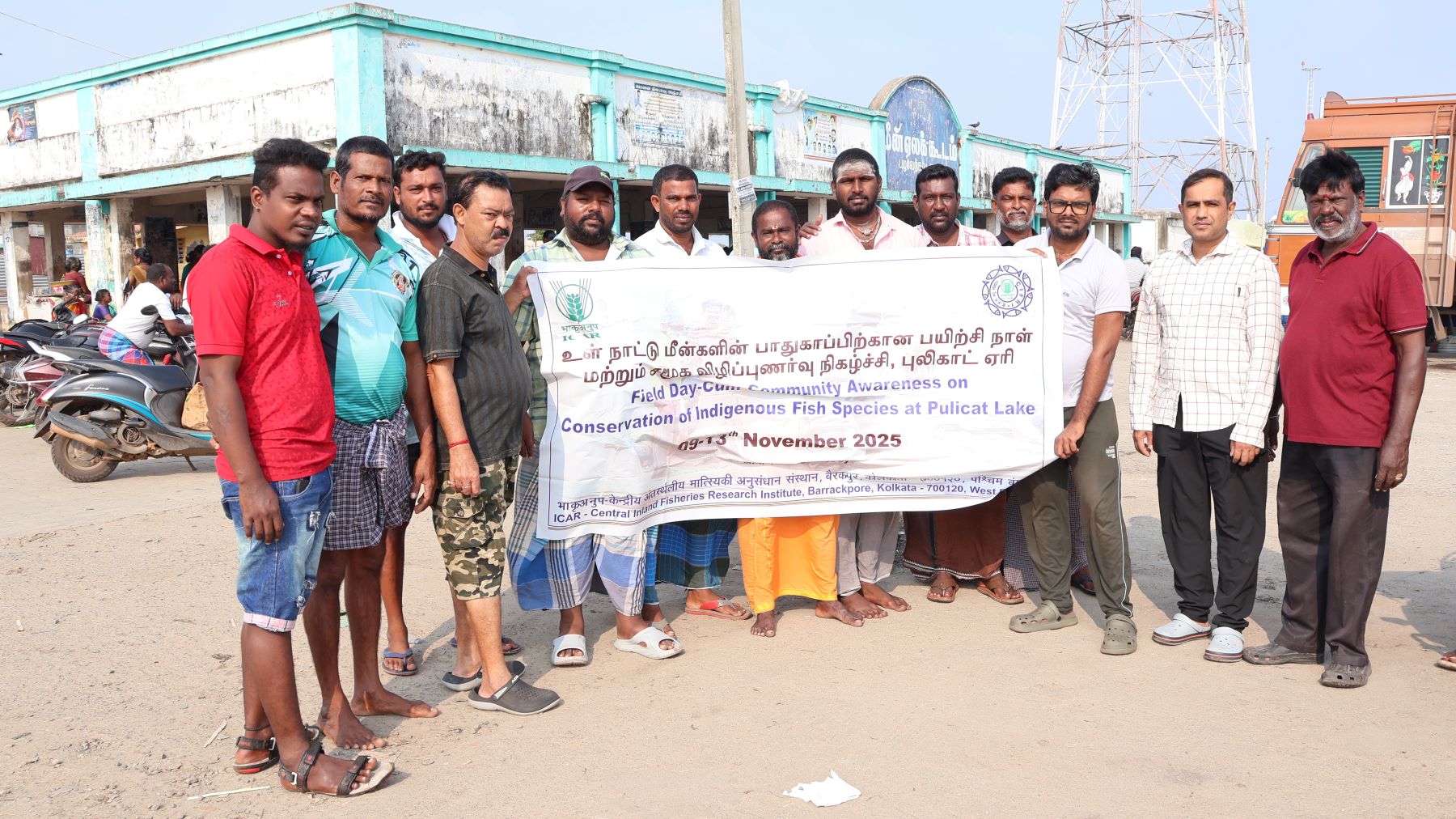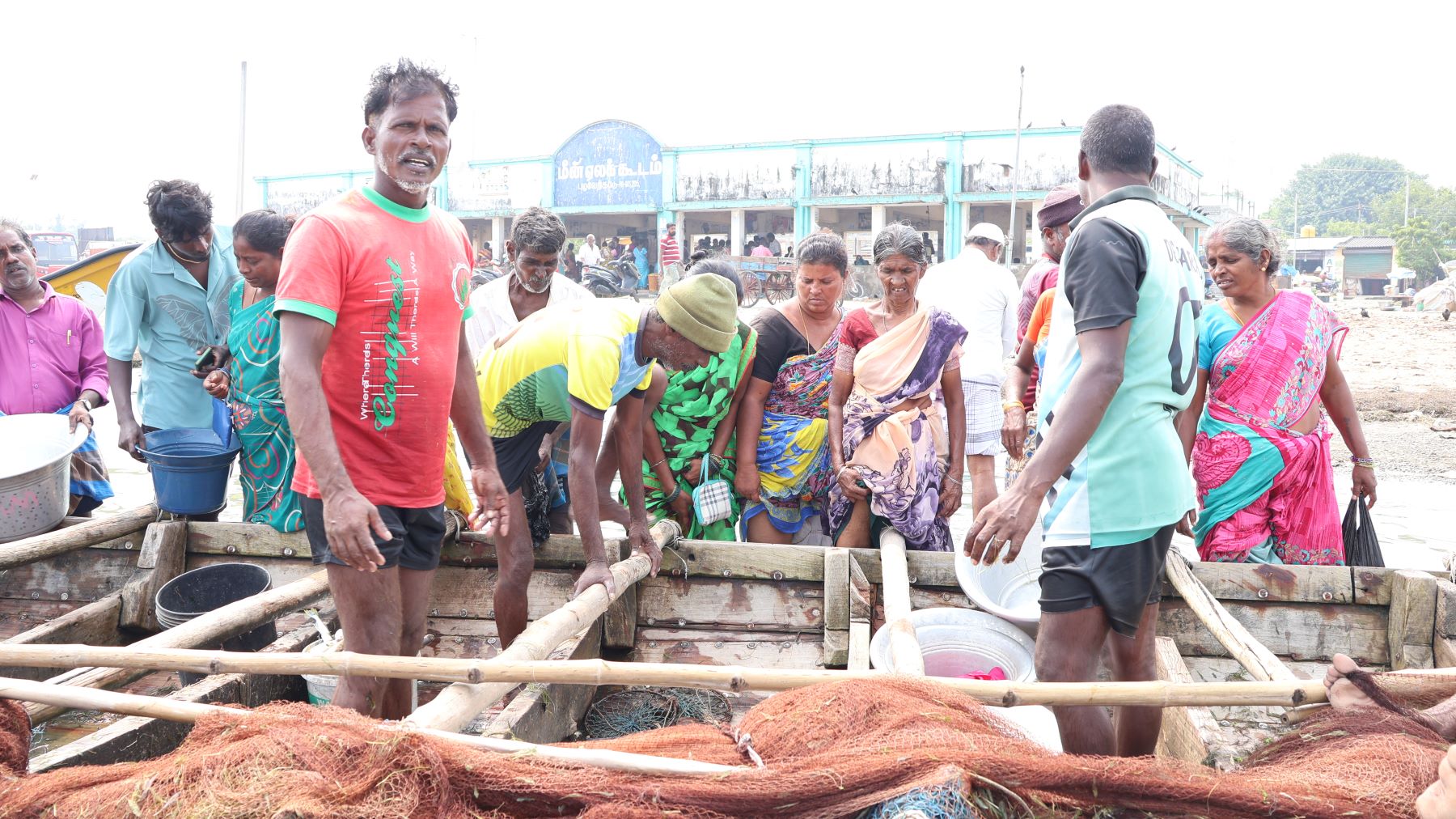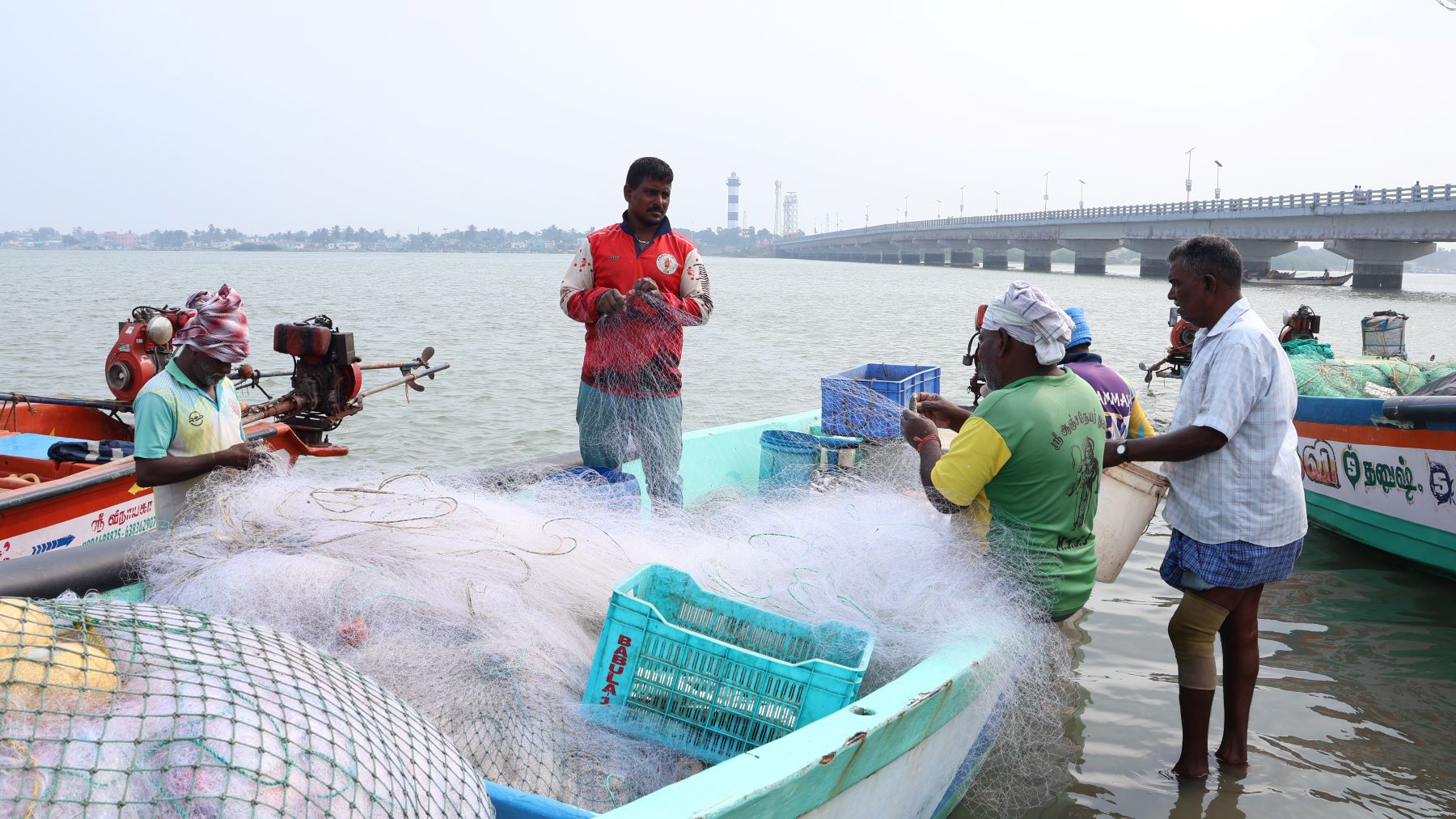Overview
Publications
Recruitment
Intranet
CIFRI Corners'
Pulicat Lake, Andhra Pradesh and Tamil Nadu
During November 9-13, 2025 ICAR-CIFRI conducted a series of community awareness and field engagement programs with emphasis on preservation and sustainable management of Pulicat Lake's native fish species. The programme was conducted under the ongoing institute programme "Assessing shifts in fish diversity, environment, and fish stocks in relation to climate change in Pulicat Lake" (REF/24-27/18). Pulicat Lake, one of India's most major brackishwater habitats, sustains a great deal of biodiversity and provides a living for thousands of fishermen.


To preserve ecological stability, sustain livelihood security, and advance sustainable fisheries development, these outreach activities emphasised the vital importance of protecting indigenous fish resources. Important elements of the programme were discussion on ecological significance of native species, interactive knowledge-sharing, and demonstrations of environmentally friendly fishing methods. The active participation of representatives from local governing organisations, community leaders, and fishermen's cooperatives strengthened the spirit of cooperation required for responsible fisheries management.












